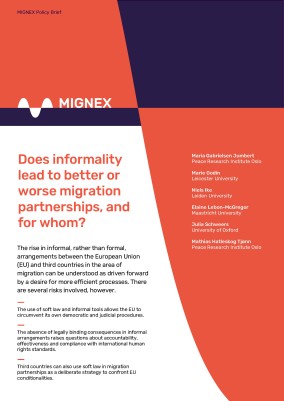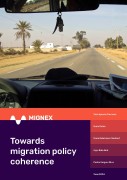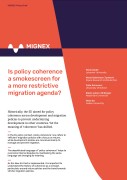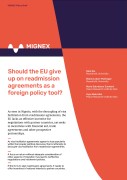MIGNEX Policy Brief
Does informality lead to better or worse migration partnerships, and for whom?

The rise in informal, rather than formal, arrangements between the European Union (EU) and third countries in the area of migration can be understood as driven forward by a desire for more efficient processes. There are several risks involved, however.
Key takeaways
The use of soft law and informal tools allows the EU to circumvent its own democratic and judicial procedures.
The absence of legally binding consequences in informal arrangements raises questions about accountability, effectiveness and compliance with international human rights standards.
Third countries can also use soft law in migration partnerships as a deliberate strategy to confront EU conditionalities.
Download this publication
Cite this publication
Gabrielsen Jumbert, M. Godin, N, Ike. Lebon-McGregor, M. Schweers, J. and Hatleskog Tjønn, M. (2024) Does informality lead to better or worse migration partnerships, and for whom?
MIGNEX Policy Brief. Oslo: Peace Research Institute Oslo.









